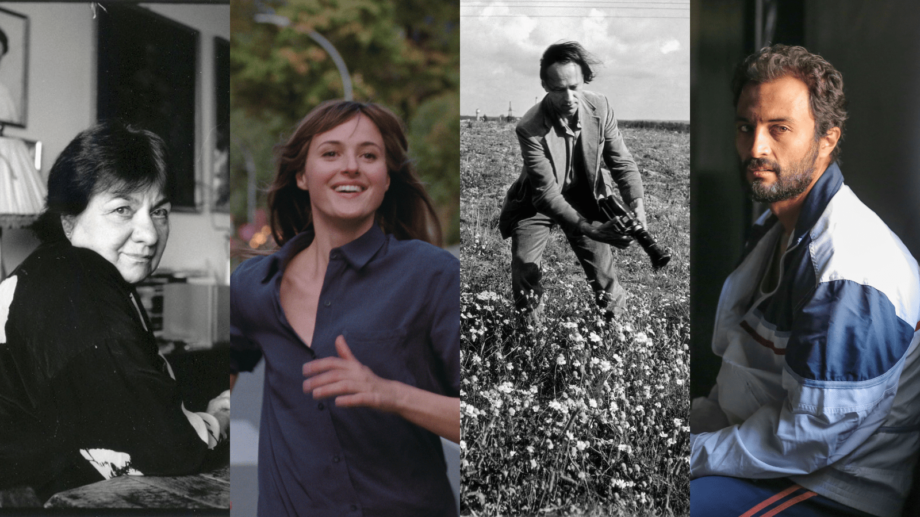Film at Lincoln Center has announced its full lineup of festival, repertory, and new-release programming for the 2022 winter/spring season.
Highlights include Asghar Farhadi’s A Hero, winner of the Grand Prix at the 2021 Cannes Film Festival; Joachim Trier’s Oslo Trilogy, including the NYFF59 selection The Worst Person in the World; further NYFF59 Main Slate selections: Hong Sangsoo’s Introduction and Nadav Lapid’s Ahed’s Knee; The Films of Márta Mészáros, a series celebrating the barrier-breaking feminist filmmaker; a retrospective featuring prolific actress Kinuyo Tanaka; Jonas Mekas: The Camera Was Always Running, a special presentation in partnership with the Jewish Museum; Camera Man: Dana Stevens on Buster Keaton, an evening of films and conversations with Slate film critic Dana Stevens and writer Imogen Sara Smith; and four greatly anticipated annual festivals: the New York Jewish Film Festival, Dance on Camera, Neighboring Scenes, and Rendez-Vous with French Cinema.
Film descriptions and additional details are listed below and on filmlinc.org. New releases and revival runs are organized by Florence Almozini, Dennis Lim, and Tyler Wilson.
FILMS & SERIES DESCRIPTIONS
All films screen at the Walter Reade Theater (165 W. 65th St.) or Elinor Bunin Munroe Film Center (144 W. 65th St.) unless otherwise noted.
Opens January 7
A Hero
Asghar Farhadi, 2021, Iran/France, 127m
Persian with English subtitles
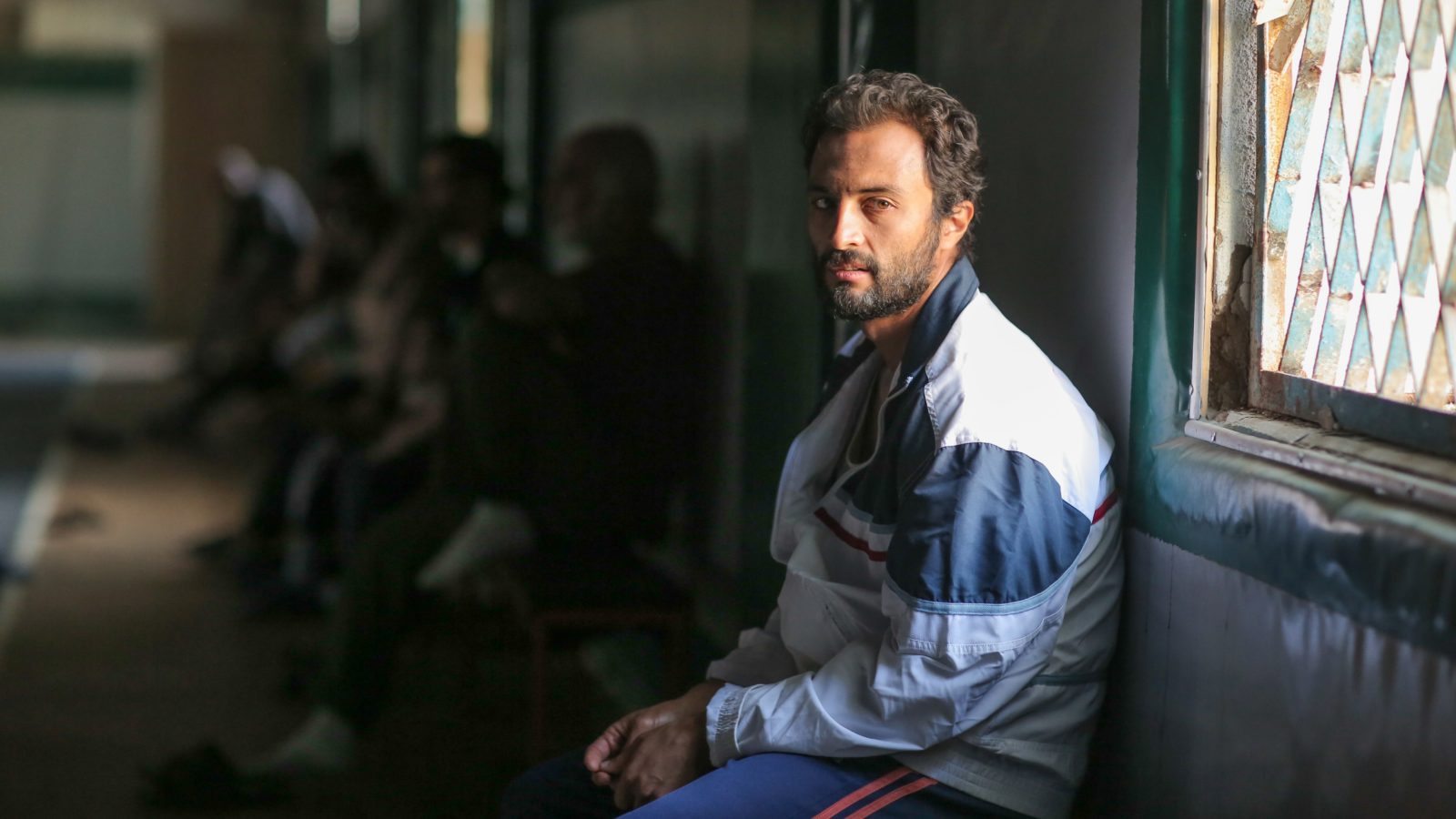
A Hero
Asghar Farhadi’s latest film is yet another expertly crafted pressure cooker of tension set in contemporary Iran. Winner of the Grand Prix at the 2021 Cannes Film Festival, A Hero follows Rahim (Amir Jadidi), a father imprisoned for an unpaid debt. While on a two-day leave, he and his fiancée hatch a scheme to convince his creditor (Mohsen Tanabandeh) to withdraw his complaint, but the plan spirals out of control when Rahim becomes the focus of a local news story. This incisive comment on justice and human frailty gradually performs a sleight of hand, beginning as a moral tale tinged with suspense before segueing into something far more surprising and psychologically rich. An Amazon Studios release.
January 12 – 25
New York Jewish Film Festival
The Jewish Museum and Film at Lincoln Center are delighted to continue their partnership to bring you the 31st annual New York Jewish Film Festival, presenting films from around the world that explore the Jewish experience. This year’s Festival presents an engaging lineup of narratives, documentaries, and shorts in a hybrid format, with some screenings occurring in person at the Walter Reade Theater, and some presented virtually. Highlights include Mano Khalil’s drama Neighbours, which tells the story of a young Kurdish boy in a Syrian border village and his friendship with a Jewish family; Rose, by Aurélie Saada, focusing on a 78-year-old Parisian woman, played by iconic French actress Françoise Fabian, who rebels against ageist and sexist stereotypes to reinvent herself; and a tribute program, curated with filmmaker Lisa Collins, to film historian Pearl Bowser, who worked at the Jewish Museum in 1970 on a landmark film series called “The Black Film.”
Organized by Rachel Chanoff, Lisa Collins, Indigo Sparks, and Aviva Weintraub, with Dennis Lim and Dan Sullivan as advisors.
Opens January 21
Introduction
Hong Sangsoo, 2021, South Korea, 66m
Korean with English subtitles
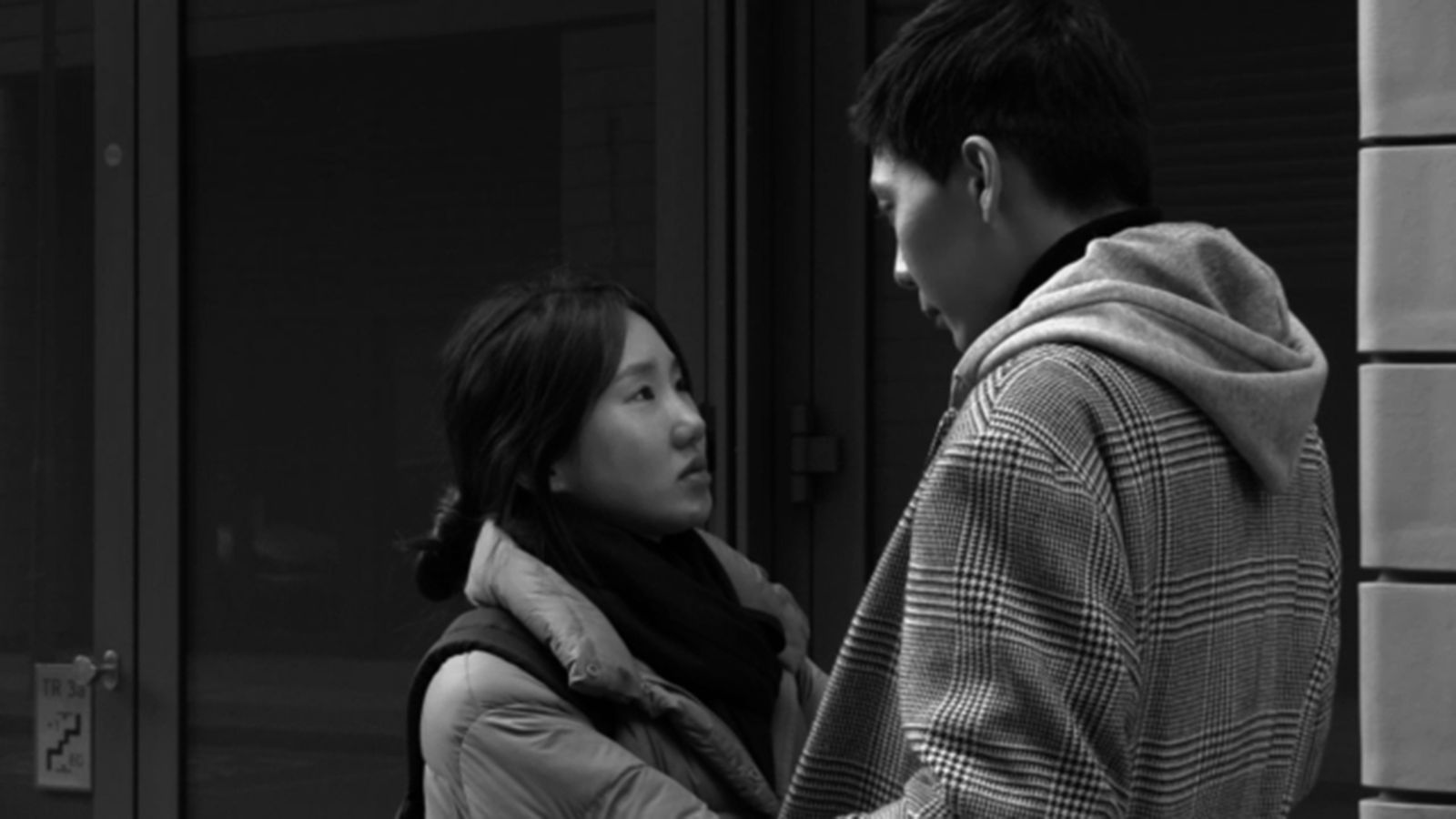
Introduction Courtesy of Cinema Guild.
In the steady yet playful hands of Hong Sangsoo, even the simplest premise can become a puzzle box of unpredictable, poignant human behavior. There could be no better example of his casual mastery than this breezy yet complexly structured study of a group of characters—most crucially parents and their grown offspring—trying to relate to one another via a series of thwarted or stunted meetings and introductions, revolving around a young man (Shin Seok-ho) on the cusp of adulthood, confused about his romantic relationships and professional goals. It’s a film that keeps opening up to the viewer through digressions and reversals, leading to one of Hong’s most amusingly unsettling soju-soaked outbursts. A Cinema Guild release. A NYFF59 Main Slate selection.
January 21 – 26
The Films of Márta Mészáros
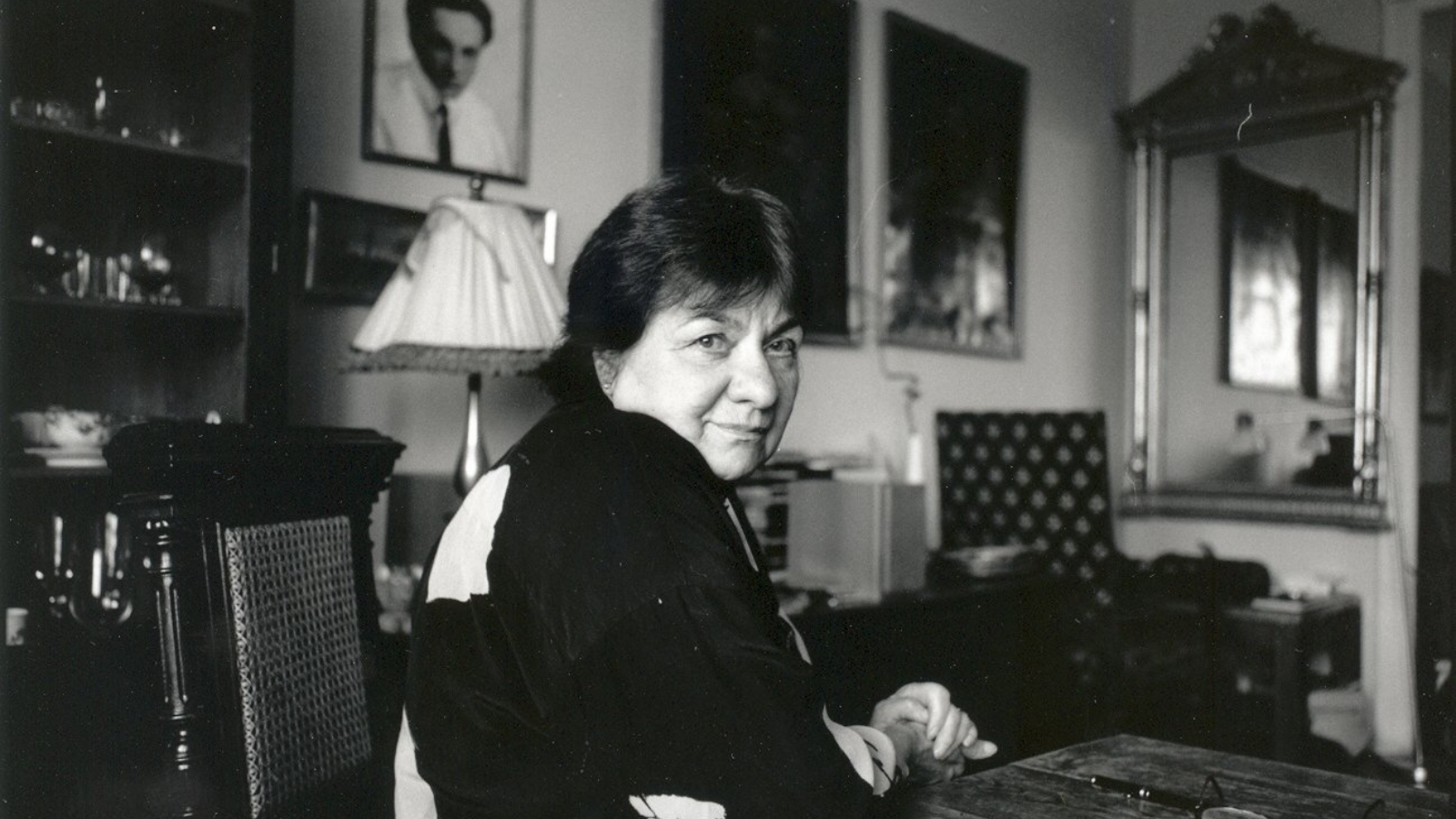
Márta Mészáros
Márta Mészáros, a socialist and feminist filmmaker whose trailblazing, half-century-long career broke barriers in cinema hierarchies, helped legitimize women’s artistic emancipation within the industry, alongside her contemporaries such as Agnès Varda and Věra Chytilová. One of the first women to direct a feature film in Hungary and the first to win the Golden Bear at the Berlin Film Festival (with 1975’s Adoption, a NYFF59 Revivals selection), Mészáros is perhaps best known for her Diary films from the 1980s and 1990s: a largely autobiographical trilogy based on the filmmaker’s life, with references to the tragic fates of her parents resulting from the Stalinist purges and her formative years as an orphan. Taken together, the films of Mészáros are masterful blends of the personal and the political, each one beautifully lensed, gently profound but never sentimental, and vividly attuned to the shifting social atmospheres of Hungary and its decades-long history of political unrest. This January, Film at Lincoln Center is pleased to present a selection of some of Mészáros’s most essential films, newly restored and on the big screen.
Presented in partnership with Janus Films. Organized by Florence Almozini and Tyler Wilson.
January 27 at 7:00pm
Camera Man: Dana Stevens on Buster Keaton
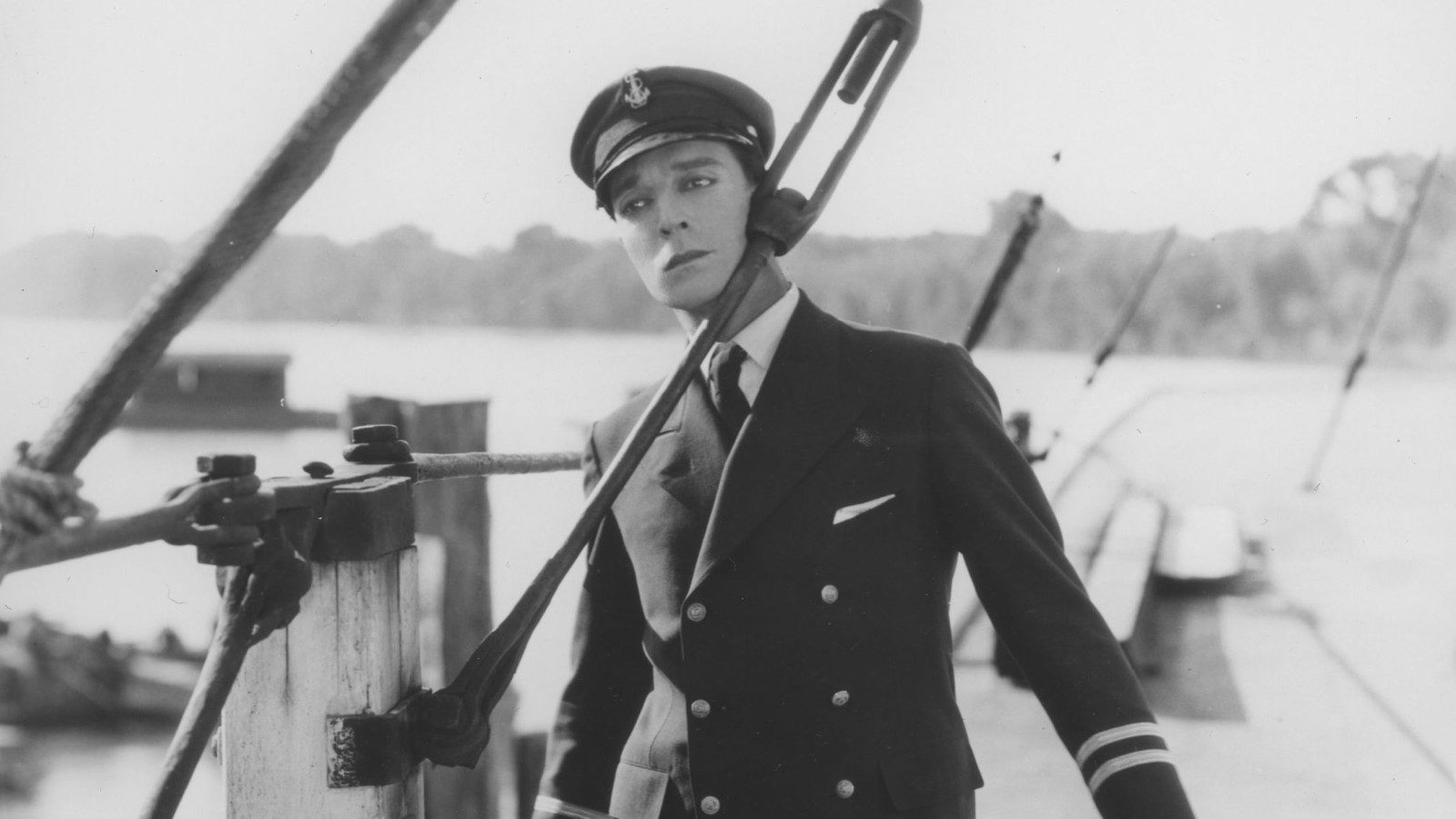
Steamboat Bill Jr.
To mark the release of her new book Camera Man: Buster Keaton, the Dawn of Cinema, and the Invention of the Twentieth Century, author and Slate film critic Dana Stevens joins us for a screening of Keaton’s silent comedy masterpiece Steamboat Bill, Jr., preceded by the classic two-reeler One Week and followed by an extended conversation with Stevens and writer Imogen Sara Smith.
January 28 – February 3
Joachim Trier: The Oslo Trilogy
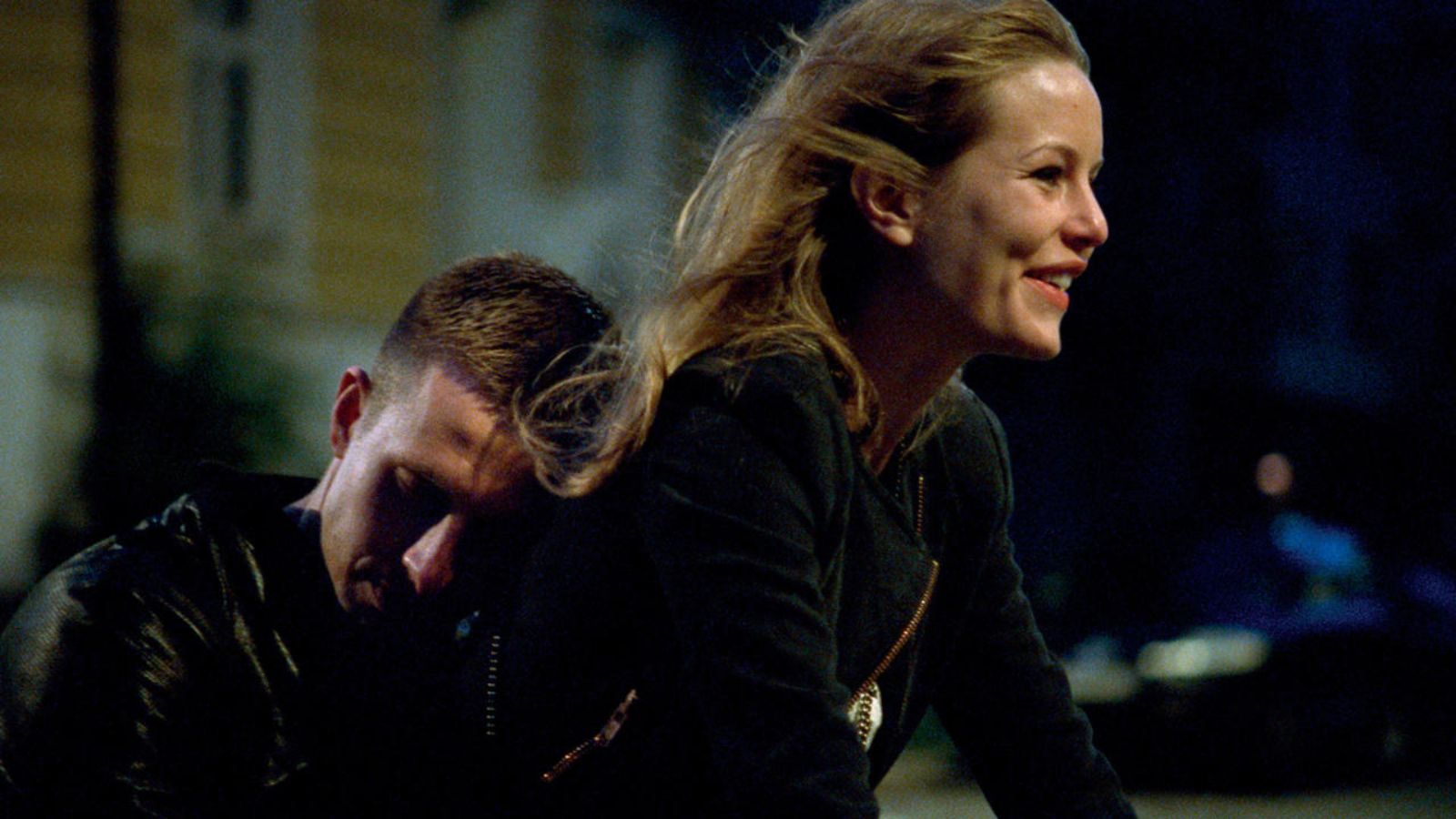
Oslo, August 31st
Fifteen years after their first feature-length collaboration, Reprise, and 10 years after its follow-up, Oslo, August 31st, director Joachim Trier and his longtime co-writer Eskil Vogt turned their gaze back on the Norwegian capital city with NYFF59 Main Slate selection The Worst Person in the World. Playful yet melancholy, intricately observed yet bracingly deft, and centering on three exhilarating performances from actor (and practicing physician) Anders Danielsen Lie, the films that comprise the newly christened Oslo Trilogy deliver lyrical, unflinching meditations on memory, self-knowledge, and the mutability of identity in today’s Europe. In celebration of the new film’s American release, Film at Lincoln Center is excited to host the filmmaker for screenings of the entire trilogy, presented alongside a selection of companion films curated by Trier and Vogt.
Organized by Dennis Lim and Madeline Whittle.
February 4
The Worst Person in the World
Joachim Trier, 2021, Norway, 121m
Norwegian with English subtitles
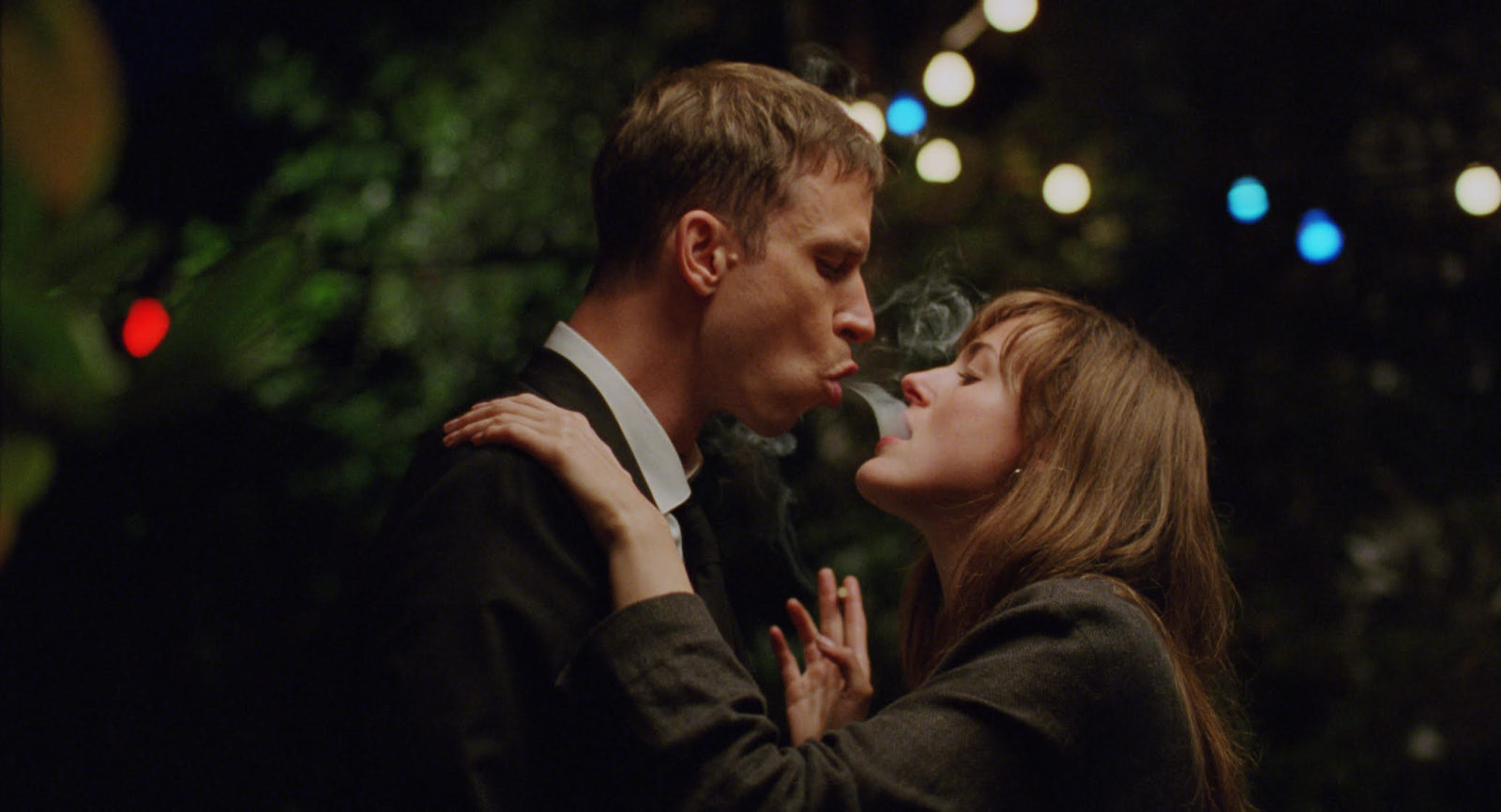
The Worst Person in the World. Courtesy of NEON.
As proven in such exacting stories of lives on the edge as Reprise and Oslo, August 31, Norwegian director Joachim Trier is singularly adept at giving an invigorating modern twist to classically constructed character portraits. Here Trier catapults the viewer into the world of his most spellbinding protagonist yet: Julie, played by Cannes Best Actress winner Renate Reinsve, who’s the magnetic center of nearly every scene. After dropping out of pre-med, Julie must find new professional and romantic avenues as she navigates her twenties, juggling emotionally heavy relationships with two very different men (Trier regular Anders Danielsen Lie and engaging newcomer Herbert Nordrum). Fluidly told in 12 discrete chapters, Trier’s film elegantly depicts the precarity of identity and the mutability of happiness in our runaway contemporary world. A NEON release. A NYFF59 Main Slate selection.
February 11 – 14
Dance on Camera
Featuring nine programs over four days, including 32 new films as well as other gems from the traditional canon, Dance on Camera Festival celebrates its 50th anniversary with a selection of titles that explore dance films from all around the globe. We will travel from the raw coastal landscape of France through the Australian plains to Turkey and back again. With films highlighting the founding and rise of the powerhouse Aboriginal company Bangarra; an artist grappling with the emotional toll of migration and a misty view of the future in Turkey; and work reflecting this particular cultural moment, touching on pandemic isolation as well as the profound impact of Black Lives Matter, DOCF50 celebrates the past and the present with a keen eye on the vast artistic potential of the future.
February 17 – 23
Jonas Mekas
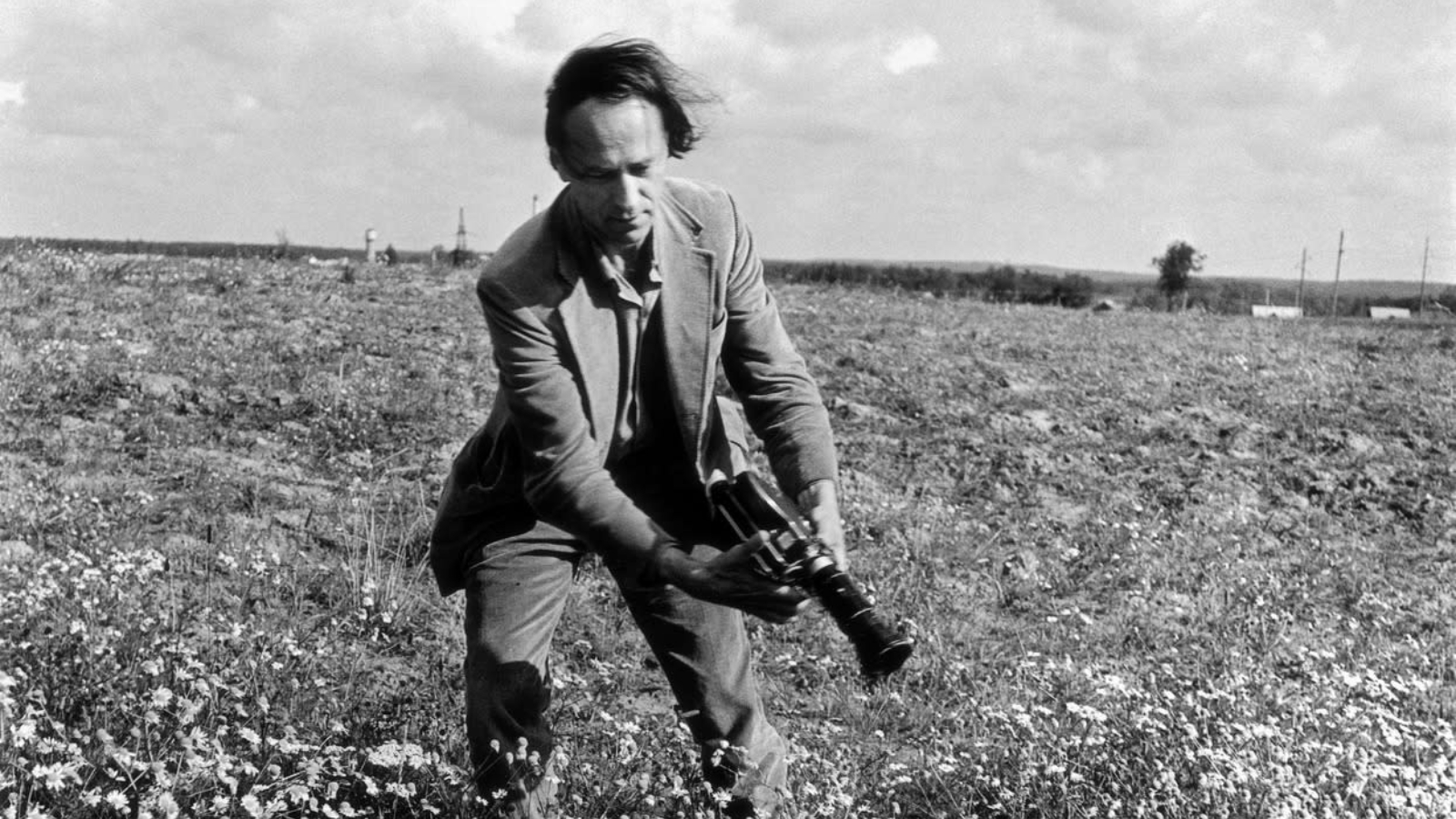
Jonas Mekas photographed by Antanas Sutkus in Semeniškiai, Lithuania, 1971. © Artist Rights Society (ARS), New York / LATGA-A, Vilnius
Few if any figures in the history of New York City film culture have left as large a mark as that of the Lithuanian filmmaker, critic, and poet Jonas Mekas. Rising to notoriety in the 1950s and ’60s as a champion of and mouthpiece for the New American Cinema, he founded and presided over such stalwart fixtures of the underground and avant-garde film scenes as Film Culture magazine, the Film-Makers’ Cinematheque, the Film-Makers’ Cooperative, and Anthology Film Archives. But he was also one of the 20th century’s most vital filmmakers, a master cine-diarist and something like a present-tense historian who documented the particulars of life as a refugee in New York City. His immense oeuvre, produced across seven decades, encompasses rapturous tone poems that exalt the quotidian and transfixing portraits of the legendary artists in his orbit. In conjunction with a major exhibition of his work at the Jewish Museum, Jonas Mekas: The Camera Was Always Running (February 18-June 5, 2022), join us for a selection of Mekas’s most essential film and video works.
Organized by Dennis Lim and Dan Sullivan. Co-presented with the Jewish Museum.
See more information about the Jewish Museum’s Jonas Mekas: The Camera Was Always Running exhibition here.
February 24 – 28
Neighboring Scenes
Now in its seventh year, Neighboring Scenes is Film at Lincoln Center’s wide-ranging showcase of contemporary Latin American cinema, highlighting impressive recent productions from across the region. This selective slate of premieres exhibits the breadth of styles, techniques, and approaches employed by Latin American filmmakers today, and spans a wide geographic range, featuring established auteurs as well as fresh talent from the international festival scene. Presented by Film at Lincoln Center and Cinema Tropical.
Organized by Carlos A. Gutiérrez and Cecilia Barrionuevo.
March 3 – 13
Rendez-Vous with French Cinema
Rendez-Vous with French Cinema returns in March with another edition that exemplifies the variety and vitality of contemporary French filmmaking. The films on display, by emerging talents and established masters, raise ideas both topical and eternal, and many take audiences to entirely unexpected places. Highlights from recent Rendez-Vous with French Cinema editions include Bertrand Bonello’s Nocturama; Julia Ducournau’s Raw; Hirokazu Kore-Eda’s The Truth, François Ozon’s Summer of 85; Bruno Dumont’s Joan of Arc; and Alice Winocour’s Proxima. Co-presented with UniFrance Films, the 27th edition of Rendez-Vous will demonstrate that the landscape of French cinema is as fertile, inspiring, and distinct as ever.
Organized by Florence Almozini and Madeline Whittle in collaboration with UniFrance.
Opens March 18
Ahed’s Knee
Nadav Lapid, 2021, France/Israel/Germany, 109m
Hebrew with English subtitles
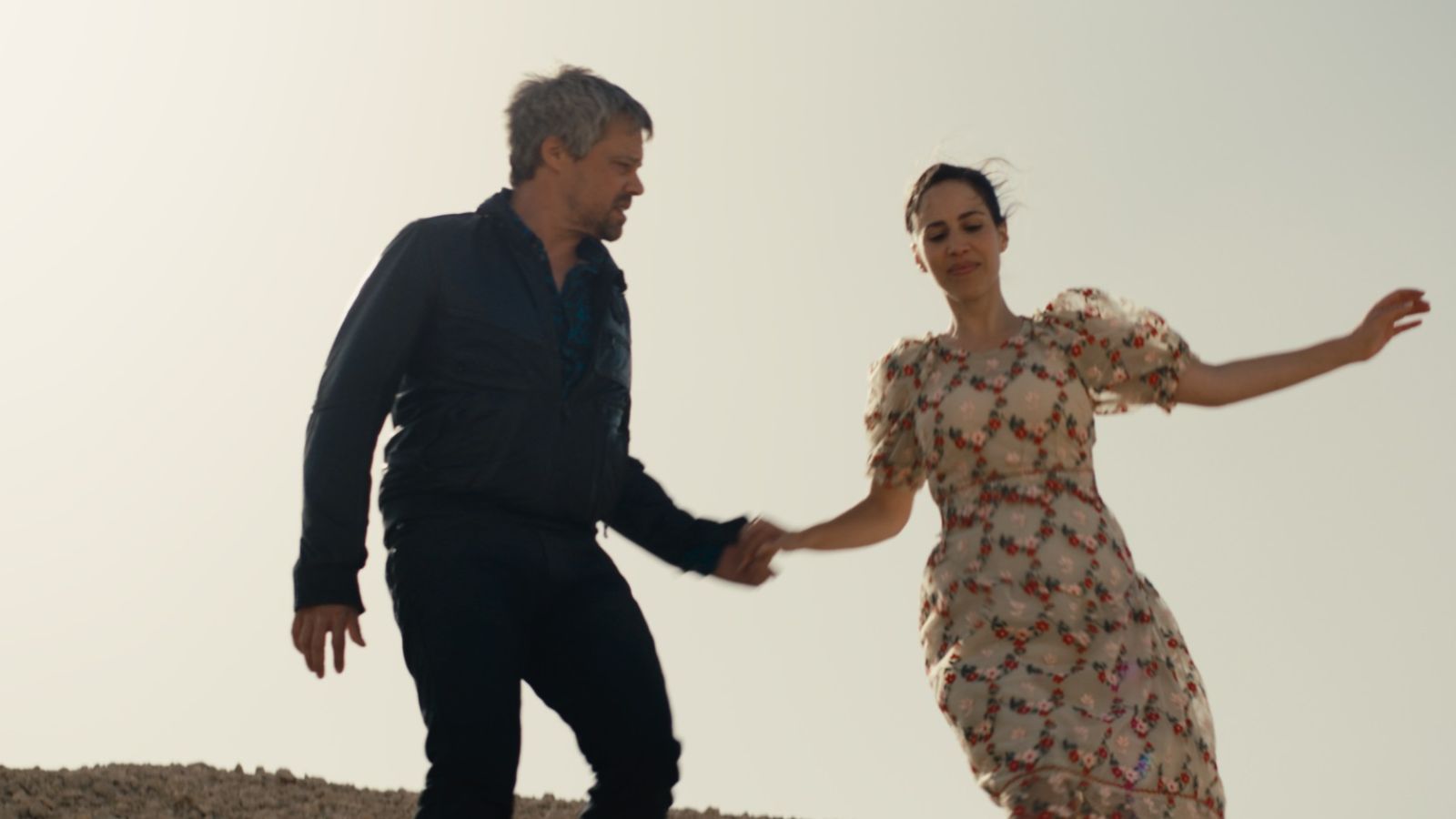
Ahed’s Knee. Courtesy of Kino Lorber.
Israeli filmmaker Nadav Lapid shows no signs of slowing down in this shattering follow-up to his bat-out-of-hell Synonyms (NYFF57). A film of radical style and splenetic anger, Ahed’s Knee accompanies a celebrated but increasingly dissociated director (Avshalom Pollak) to a small town in the desert region of Arava for a screening of his latest film. Already anguished by the news of his mother’s fatal illness (Lapid’s film was made soon after the death of his own mother, who had worked as his editor for many years), he grows frustrated with a speech-restricting form he is encouraged to sign by a local Ministry of Culture worker (Nur Fibak). The confrontation ultimately sends him into a spiral of rage aimed at what he perceives as the censorship, hypocrisy, and violence of the Israeli government. This boldly shot and conceived work, which won the Grand Jury Prize at this year’s Cannes Film Festival, feels as though it has welled up from the depths of its maker’s soul. A Kino Lorber release. A NYFF59 Main Slate selection.
March 18 – 27
Kinuyo Tanaka
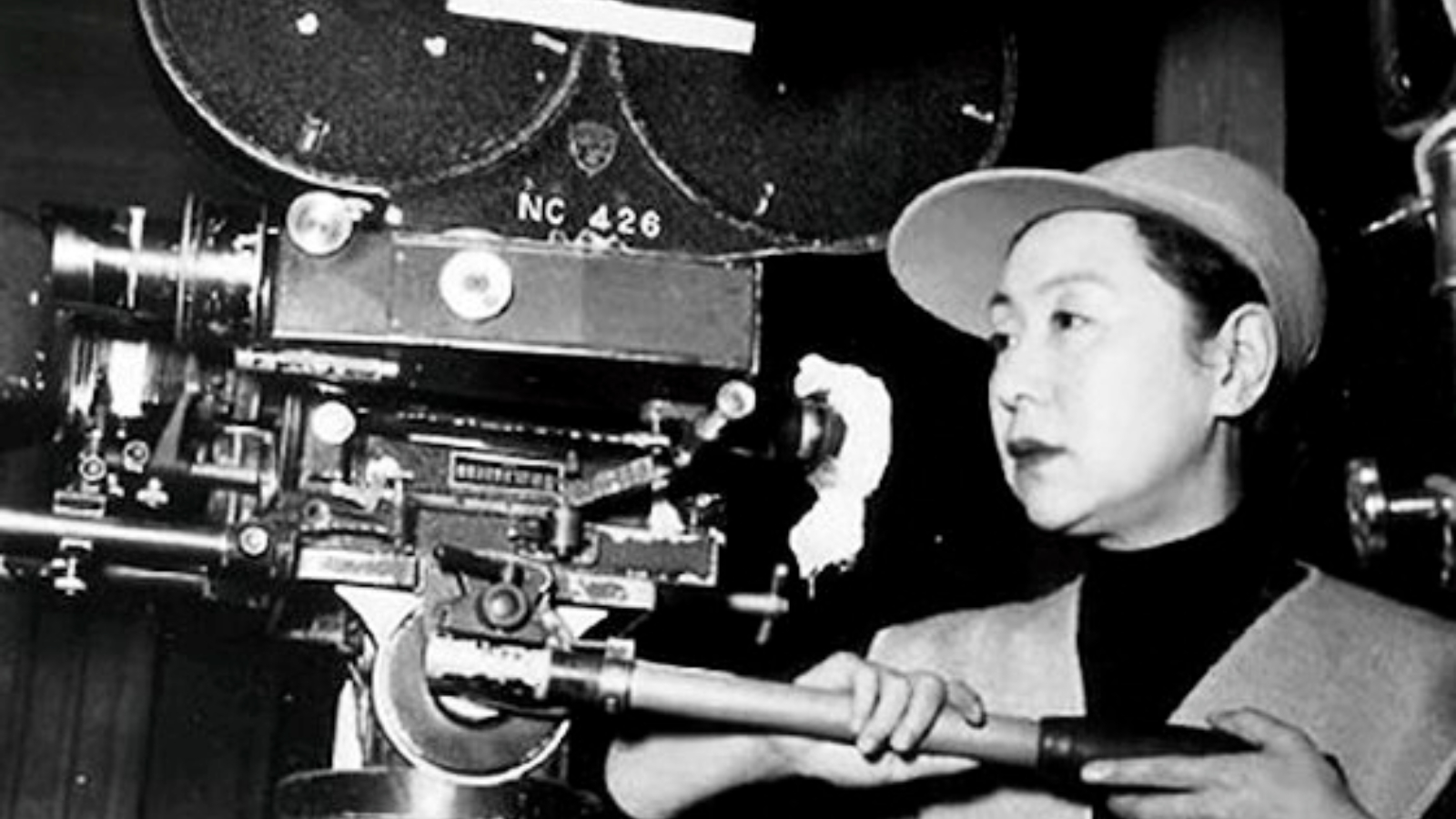
Kinuyo Tanaka
As an actress in over 250 films, Kinuyo Tanaka (1909-1977) was one of the most celebrated and wildly popular artists of her time, regularly collaborating with consummate masters like Yasujiro Ozu, Kenji Mizoguchi (15 films, including Ugetsu), and Mikio Naruse (whose 1952 film, Mother, introduced her to an international audience). In 1953, Tanaka boldly turned to directing her own features in an industry deprived of female filmmakers and amid outcries from her mentors (particularly Mizoguchi). Nevertheless, she fulfilled her ambition with the help of the young studio Shintoho and her faithful friends Ozu and Naruse, as well as the gay activist filmmaker Keisuke Kinoshita, who penned the screenplay for her directorial debut, Love Letter, which went on to receive critical acclaim at the 1954 Cannes Film Festival. Between 1953 and 1962, Tanaka directed half a dozen films with a determined sense of freedom and touches of provocation, placing women at the forefront of her movies as mistresses, prostitutes, poets, heroines, and victims of social injustice. Film at Lincoln Center is honored to pay tribute to Tanaka’s monumental place in film history with a retrospective including these six rare films, newly restored by the studios with which she worked: Nikkatsu, Toho, Shochiku and Kadokawa.
Presented in partnership with Janus Films. This retrospective was conceived by Lili Hinstin. Organized by Lili Hinstin and Tyler Wilson.


